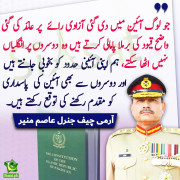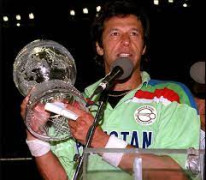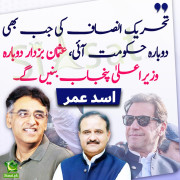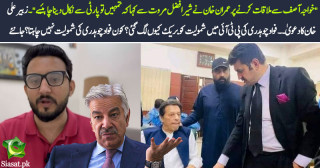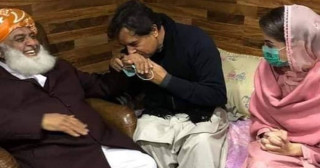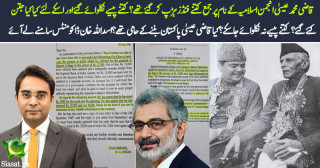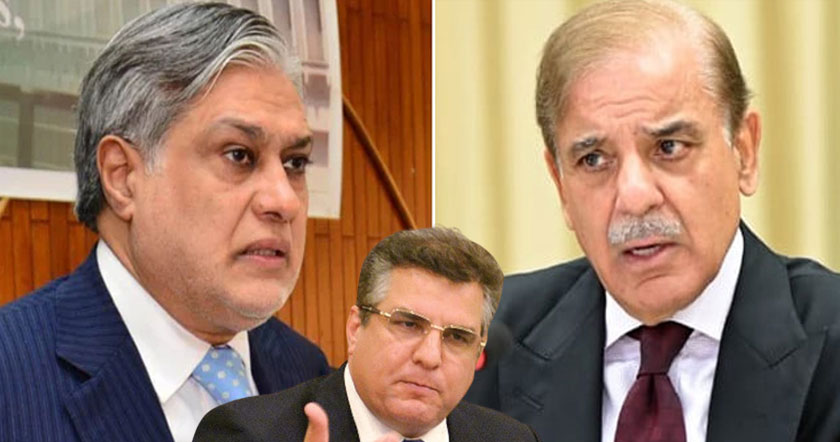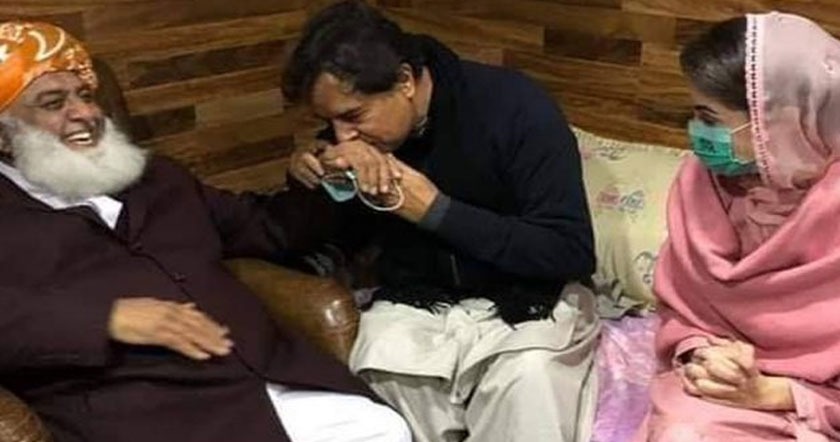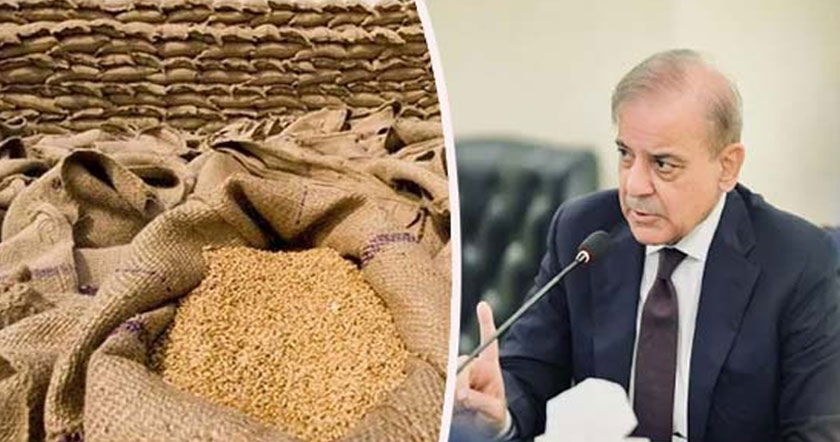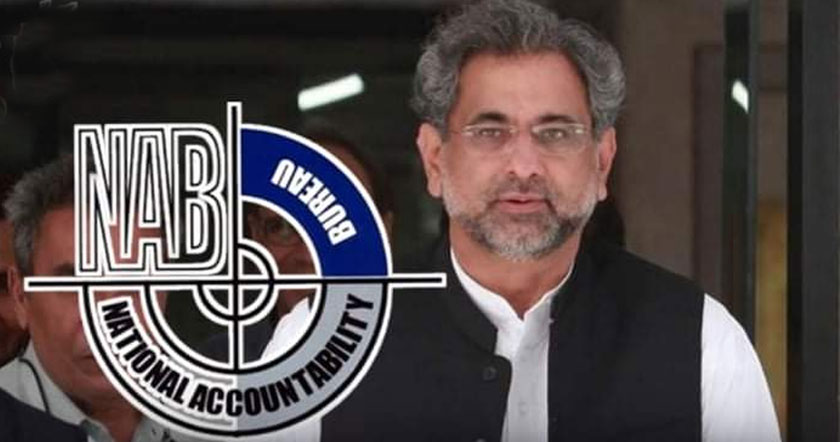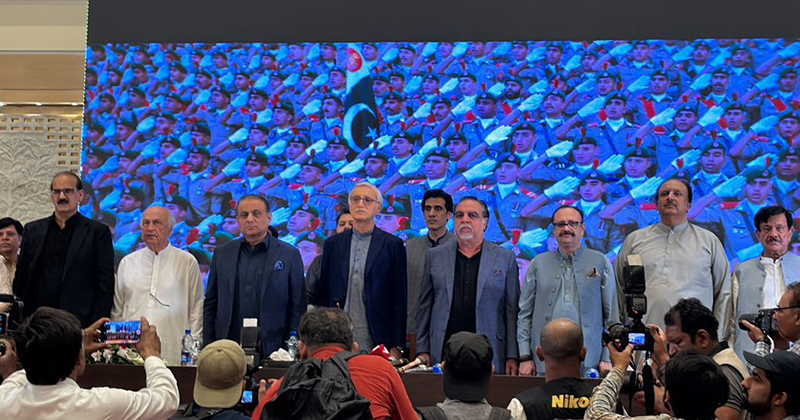You are using an out of date browser. It may not display this or other websites correctly.
You should upgrade or use an alternative browser.
You should upgrade or use an alternative browser.
Agar Afghanistan Mein Taliban Ka Iqtidar Qaim Ho Jaye
- Thread starter Citizen X
- Start date
What Ghamdi sahib is saying is correct academically but practical events and the course of history does not operate like this. A problem with us is to consider a person knowledgeable about one field to have answers to all the questions. Ghambi sahib should stick to religion and should be asked question on that rather than everything under the sun.
knowledge88
Chief Minister (5k+ posts)
Ghamdi Sahab is not telling the whole story? where did Islam spread through democracy? Even during the time of the second Khalifa Hazrat Umer Razi Allah Talah Anho, Muslims were in minority.
Also, he is against using power (i.e. gun and sword )to establish the government.
What about Umayyad's conquest of Spain which established Muslim rule in Spain?
The First Battle of Panipat, paving the way for Mughal rule in India.
Muhammad ibn Qasim led the Muslim conquest of Sindh and Multan from the last Hindu
When was the last time Muslims established an Islamic government through voting?
Also, he is against using power (i.e. gun and sword )to establish the government.
What about Umayyad's conquest of Spain which established Muslim rule in Spain?
The First Battle of Panipat, paving the way for Mughal rule in India.
Muhammad ibn Qasim led the Muslim conquest of Sindh and Multan from the last Hindu
When was the last time Muslims established an Islamic government through voting?
atensari
(50k+ posts) بابائے فورم
خون خوار جمہورے فرانس کے شاہی محل پر حملہ نہیں کرتے تو جمہوریت کیسے پنپتی. امریکا نے افغانستان، عراق، لیبیا مصر میں "جمہوریت" کیسے قائم کروائی
جمہوریت کے علمبردار کے ہاتوں جمہوریت کی شکست
جمہوریت کے علمبردار کے ہاتوں جمہوریت کی شکست
Sohail Shuja
Chief Minister (5k+ posts)
Very valid questions raised.Ghamdi Sahab is not telling the whole story? where did Islam spread through democracy? Even during the time of the second Khalifa Hazrat Umer Razi Allah Talah Anho, Muslims were in minority.
Also, he is against using power (i.e. gun and sword )to establish the government.
What about Umayyad's conquest of Spain which established Muslim rule in Spain?
The First Battle of Panipat, paving the way for Mughal rule in India.
Muhammad ibn Qasim led the Muslim conquest of Sindh and Multan from the last Hindu
When was the last time Muslims established an Islamic government through voting?
Well, on one hand, we see that the transfer of power in Arabia, after the demise of Muhammad (SAW) was through Bayt (indirect election) and this continued to Hazrat Ali (RA). No explicit use of power is denoted in the annals of history about these transfers.
However, it is also a fact that military victories and expansion of Muslim state thrived on the might of the sword. If in the conquered states, Muslims went by the rule of voting then they wouldn't have had a chance to spend a second day on those soils.
Although, some intellectuals assign these military victories as a different operation than politics and power of vote. They ask that what would you do if someone is planning a war on you? would you just wait and let them come and behead your civilians or will you nab them before anything?
So, I guess Islam does not recognize the "Majority is authority" rule, but rather says that "those who know and those who do not are not equal". Islam stresses upon the mutual collaboration of the specialists and not the generalists. "Shoora" means "Council" and not the "People".
There is a very good book on this subject:
knowledge88
Chief Minister (5k+ posts)
Very valid questions raised.
Well, on one hand, we see that the transfer of power in Arabia, after the demise of Muhammad (SAW) was through Bayt (indirect election) and this continued to Hazrat Ali (RA). No explicit use of power is denoted in the annals of history about these transfers.
However, it is also a fact that military victories and expansion of Muslim state thrived on the might of the sword. If in the conquered states, Muslims went by the rule of voting then they wouldn't have had a chance to spend a second day on those soils.
Although, some intellectuals assign these military victories as a different operation than politics and power of vote. They ask that what would you do if someone is planning a war on you? would you just wait and let them come and behead your civilians or will you nab them before anything?
So, I guess Islam does not recognize the "Majority is authority" rule, but rather says that "those who know and those who do not are not equal". Islam stresses upon the mutual collaboration of the specialists and not the generalists. "Shoora" means "Council" and not the "People".
There is a very good book on this subject:
Haven't seen you for a long time. Good to see you. How have you been? Thanks for the book referral.
Your logic can answer some questions but still raises some questions.
For example who will decide who to include in Shoora ? I give you one example. Long long time ago when both Qazi Hussain Ahmed and Shah Ahmed Noorani were alive. Qazi Hussain Ahmed said " We have 4000 Mujahaideen to implement Islamic System in the country " to which Shah Ahmed Noorani responded " 4000 ghundon say Islam nahi phail saktah " :-)
No one will agree on the honesty and qualifications of others. Look at Ghamidi Sahab. He is qualified, honest. But he is hated so much that he had to leave the country. You can make Shura of your own choice like Zia did. That's why west say that democracy is not the best system but there is no other system better than democracy.
Now in response to your point that Muslims can't wait for their enemy to attack. So they have to attack to defend. Well that was not the case in Spain, also Mughal were not in danger. MUGHALS were actually Mangols I.e. from Gangaiz Khan. Attacking and ruling were in their blood.
Last edited:
Mocha7
Minister (2k+ posts)
Haven't seen you for a long time. Good to see you. How have you been? Thanks for the book referral.
Your logic can answer some questions but still raises some questions.
For example who will decide who to include in Shoora ? I give you one example. Long long time ago when both Qazi Hussain Ahmed and Shah Ahmed Noorani were alive. Qazi Hussain Ahmed said " We have 4000 Mujahaideen to implement Islamic System in the country " to which Shah Ahmed Noorani responded " 4000 ghundon say Islam nahi phail saktah " :-)
However, it is also a fact that military victories and expansion of Muslim state thrived on the might of the sword. If in the conquered states, Muslims went by the rule of voting then they wouldn't have had a chance to spend a second day on those soils.
As far as I know
In our recent history there are two successful power acquisition by Islamic parties or groups. One in Egypt by Ikhwan ul Muslimeen, irrespective of much long their journey was, it was peaceful. Within a short period of time their government was toppled by Egyptian Army with the consent of Saudia and US. These type of government can not withstand US resistance. On the other hand recent victory by Taliban in Afghanistan came after long war and much bloodshed from both sides. They can withstand external pressure, but their extremely narrow vision and very distinctive approach of basic human rights frightens masses.
Sohail Shuja
Chief Minister (5k+ posts)
Doing fine by the Grace of Allah(SWT). I have been here, but was mostly on passive mode as nothing stirred an urge to reply fervently. It is solely my pleasure to refer the book of a great scholar of modern times and a thorough researcher to a person who is entitled to be referred that book to.Haven't seen you for a long time. Good to see you. How have you been? Thanks for the book referral.
I can see where you are coming from. However, when you will read that book I referred, you will come to understand that Islam only proscribes a certain set of rules to be followed in terms of legislation, but the side of administration has been very fluid. It emphasizes on people to follow the ruler, as far as his orders are in line with the commandments of Islam. It never really puts a pressure on the ruler to obey the people.Your logic can answer some questions but still raises some questions.
For example who will decide who to include in Shoora ? I give you one example. Long long time ago when both Qazi Hussain Ahmed and Shah Ahmed Noorani were alive. Qazi Hussain Ahmed said " We have 4000 Mujahaideen to implement Islamic System in the country " to which Shah Ahmed Noorani responded " 4000 ghundon say Islam nahi phail saktah " :-)
No one will agree on the honesty and qualifications of others. Look at Ghamidi Sahab. He is qualified, honest. But he is hated so much that he had to leave the country. You can make Shura of your own choice like Zia did. That's why west say that democracy is not the best system but there is no other system better than democracy.
Now in response to your point that Muslims can't wait for their enemy to attack. So they have to attack to defend. Well that was not the case in Spain, also Mughal were not in danger. MUGHALS were actually Mangols I.e. from Gangaiz Khan. Attacking and ruling were in their blood.
Shoora also does not mean the representative of the people in its literal sense, it means the people of authority and they can come with a different set of qualifications. Hazrat Abu Bakar Siddique (RA) was chosen by a Shoora of close companions of Muhammad (SAW), whereas he transferred the power to Hazrat Umar e Khattab (RA) by means of his sole decision, whereas Hazrat Umar (RA) selected a group of six people to decide among themselves who is going to be his successor and it was only for Hazrat Ali ibn e Talib (RA) that a proper vote was carried out by the consensus of the people in haram shareef.
Likewise, there also exists a dichotomy in the interpretation of the word democracy from the perspectives of its origins and dimorphism of modern contexts. In Greece, the "rule of the people, by the people" meant that the one's they considered people were different from the inhabitants of the state i.e to say that only around ten to fifteen percent of the inhabitants were Greeks and the rest were either slaves or subjects.
However, the modern theme of democracy always underlines the concepts retained from the French revolution.
However, Islam leaves that space to form a system of administration of divine laws to the consonants of time and space. Maybe, in a time when communication and education was not so rapid, the system of monarchy might have served the purpose better than democracy or perhaps in a society where most of the people are recent converts to Islam and are in the phase of knowing about their religion, maybe a foreign ruler of good administrative experience and wholesome knowledge of Islam might have been a better choice, until the society becomes fully aware of its rights and responsibilities within the framework of Sharia.
Sohail Shuja
Chief Minister (5k+ posts)
It will be rather premature IMHO to call this a victory of Taliban, at this point in time. This transition of power seems like part of a greater plan where some stakeholders, other than Mr. Ashraf Ghani were/are involved. This appears to be just a move to overthrow the Govt of Ashraf Ghani who was pestering the Govt Office and misusing his powers and impeding the road to a peaceful treatise.As far as I know
On the other hand recent victory by Taliban in Afghanistan came after long war and much bloodshed from both sides. They can withstand external pressure, but their extremely narrow vision and very distinctive approach of basic human rights frightens masses.
I heard today from the Russian FO that they will be visiting Afghanistan today and "are ready to work with the interim government". Now, if that word "interim" or "caretaker" was used deliberately or was there a translation problem? we will soon find out.
However, on the other hand, the spokesperson of Taliban, Mr. Sohail has also iterated in one of his most recent interviews that they also want a Government which is inclusive of all the major factions of Afghanistan.
Therefore, the recent move of Taliban, can be regarded as their win against Ashraf Ghani's regime, but we really cannot term it as their legit takeover of power of Afghanistan. I think there is something in the plan which will be coming up anytime soon, regarding the election or division of power and resources among other Afghan factions too.


